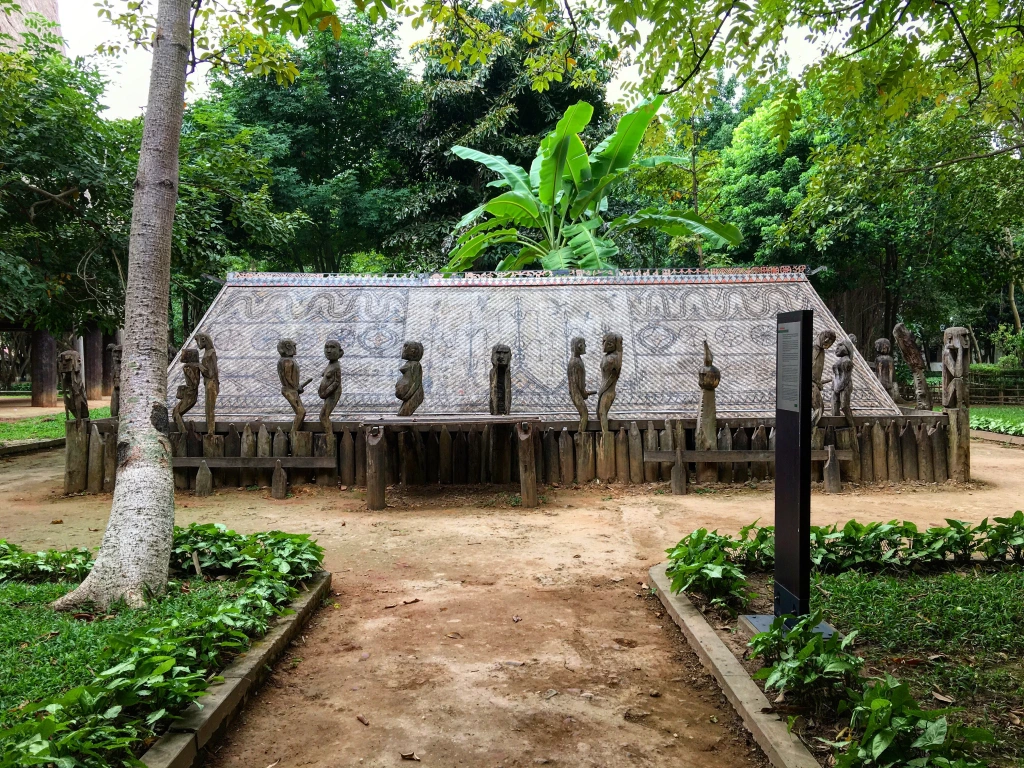
Welcome to the Vietnam Museum of Ethnology, a captivating institution that celebrates the diverse ethnic groups and cultural heritage of Vietnam. Located in Hanoi, this museum offers a fascinating journey through history, traditions, and the unique customs of various ethnic communities. Join us as we explore the Vietnam Museum of Ethnology, where you can gain a deeper understanding of the cultural mosaic that shapes Vietnam’s identity.
The Vietnam Museum of Ethnology boasts an extensive collection of artifacts, exhibits, and interactive displays that offer insights into the country’s diverse ethnic groups. Divided into indoor and outdoor sections, the museum provides an immersive experience for visitors.
The indoor galleries showcase a remarkable array of cultural objects, traditional costumes, handicrafts, and historical artifacts. Each exhibit focuses on a specific ethnic group, highlighting their unique customs, rituals, and ways of life. From the vibrant textiles of the Hmong people to the intricate wood carvings of the Cham community, you’ll be immersed in the rich tapestry of Vietnamese culture.
One of the highlights of the indoor exhibitions is the recreated traditional houses. These meticulously crafted structures provide a glimpse into the architectural styles and living environments of various ethnic groups. Step inside and explore the distinct features of each house, from the stilt houses of the Tay and Thai communities to the communal longhouses of the Ede people.
Venture outside to the expansive outdoor area, where you’ll find traditional houses from different regions of Vietnam. These authentic structures have been relocated and reconstructed to accurately represent the architectural diversity of the country. Take a leisurely stroll through the tranquil pathways and admire the intricate designs and craftsmanship of these traditional dwellings.
The outdoor exhibitions also showcase various farming tools, agricultural practices, and fishing techniques used by different ethnic groups. Gain an appreciation for Vietnam’s rural traditions as you learn about the cultivation of rice, weaving techniques, and fishing traditions that have sustained communities for generations.
The Vietnam Museum of Ethnology offers an opportunity to witness live cultural performances and participate in hands-on workshops. Traditional music and dance performances are regularly held at the museum’s open-air stage, allowing visitors to experience the vibrant rhythms and graceful movements of different ethnic groups.
For those seeking a more interactive experience, the museum organizes workshops where visitors can learn traditional crafts, such as bamboo weaving, pottery making, and fabric dyeing. These workshops provide a unique opportunity to engage directly with local artisans and gain a deeper understanding of their skills and artistic traditions.
The Vietnam Museum of Ethnology is not only a place for visitors to immerse themselves in Vietnamese culture but also a hub for research and educational programs. The museum’s dedicated team of researchers and experts continually work to preserve and document the cultural heritage of Vietnam’s ethnic groups.
The museum offers educational programs for schools and universities, providing students with a comprehensive understanding of Vietnam’s ethnic diversity. Through workshops, lectures, and guided tours, these programs foster cultural appreciation and promote intercultural dialogue.
Before leaving the museum, don’t forget to visit the souvenir shop, where you can find a wide range of handicrafts, textiles, and traditional items representing the country’s ethnic groups. These unique souvenirs make for memorable gifts or personal mementos of your visit to the museum.
If you’re feeling hungry, the museum’s on-site restaurant offers a selection of Vietnamese dishes, allowing you to savor the flavors of the country’s diverse culinary traditions. Indulge in local specialties and continue your cultural journey through the palate.
The Vietnam Museum of Ethnology is a captivating destination that showcases the rich cultural heritage and ethnic diversity of Vietnam. Through its exhibits, performances, workshops, and educational programs, visitors can gain a profound appreciation for the traditions, customs, and ways of life that have shaped the country’s identity.
Immerse yourself in the vibrant world of Vietnamese culture as you explore the indoor and outdoor exhibitions, witness traditional performances, and engage in hands-on workshops. The Vietnam Museum of Ethnology is an enriching experience that allows you to connect with the country’s past, present, and future, leaving you with a deeper understanding and appreciation of Vietnam’s cultural mosaic.
Subscribe to see secret deals prices drop the moment you sign up!
